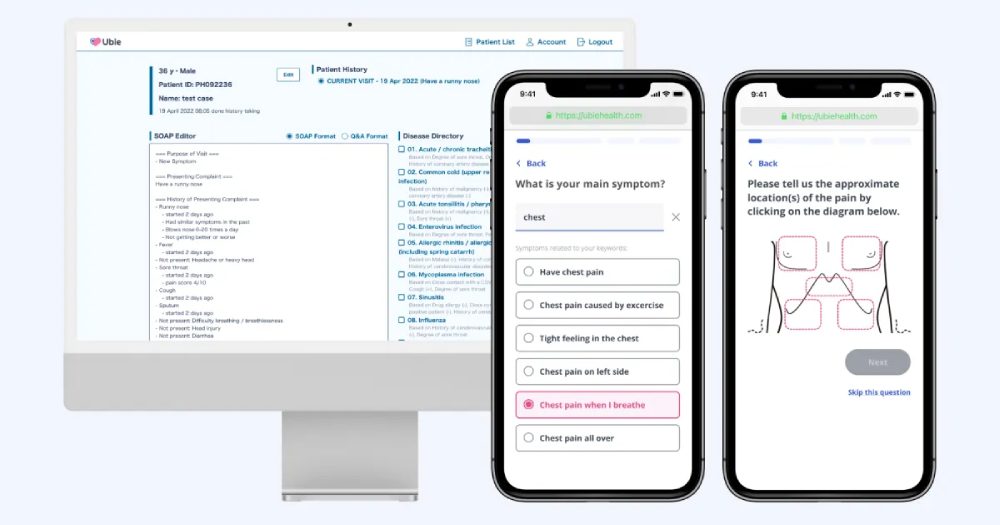AI-powered tool introduced in Japan to help doctors summarize patient interviews

A new AI-powered tool has emerged in Japan to increase efficiency and precision in healthcare. Designed to streamline the often lengthy preliminary patient interviews, the tool is poised to revolutionize the medical landscape in the country.
The innovation is a work of Japanese startup Ubie, which has introduced a Large-Language Model (LLM) feature into its AI-powered patient service platform. The feature, known as the "Medical Interview Summary Function," promises to simplify and accelerate the information-gathering process during patient interviews.
How does it work?
The Medical Interview Summary Function is a notable addition to the Ubie Medical Navi platform, which replaces conventional paper-based medical questionnaires with digital forms. Patients must respond to 20-30 questions about their symptoms and lifestyle via the digital interface. This tool boasts an LLM-driven capacity to automatically summarize patients' responses, presenting a concise summary to attending physicians.
Still, the tool retains the original text as a reference point to ensure the utmost accuracy and reliability of the summarized information. This dual-layer approach safeguards against any potential loss of critical details, maintaining the integrity of patient records.
The innovative summary feature is made available at no additional cost to the entire cohort of 1,500 healthcare professionals currently utilizing the Ubie Medical Navi platform, spread across 47 prefectures in Japan!
Why does it matter?
The genesis of the Medical Interview Summary Function can be traced back to the feedback from busy healthcare practitioners. They voiced their desire for a tool that would enable them to quickly and briefly comprehend patient concerns and symptoms.
The time-consuming process of manually sifting through exhaustive preliminary interviews and preparing notes prompted Ubie to develop this cutting-edge solution.
Field trials with users of the Ubie Medical Navi platform underscore the tangible benefits of this LLM-driven feature. It not only elevates the quality of patient communication but also bolsters operational efficiency. The feedback from users suggests high satisfaction levels, indicating the tool's enduring value.
The context
Adopting generative AI tools is not unique to Japan — it is part of a broader trend sweeping the healthcare landscape across the globe.
Singapore's national health technology agency, Synapxe, is collaborating with Microsoft to develop LLMs that assist healthcare professionals in the public sector. Additionally, a startup based in Malaysia and Singapore has recently launched its generative AI tool, capable of translating medical jargon, complex health reports, and imaging data into digestible visual content.
In India, medical AI startup AI4Rx has introduced the MedBeat HealthConnect patient and doctor apps, featuring AI-powered summaries of patients' potential symptoms and diseases, mirroring the approach of Ubie's LLM-based offering.
And the situation is similar in the U.S. and Europe, where select hospitals and health systems have also started experimenting with this technology.
💡Did you know?
You can take your DHArab experience to the next level with our Premium Membership.👉 Click here to learn more
🛠️Featured tool
 Easy-Peasy
Easy-Peasy
An all-in-one AI tool offering the ability to build no-code AI Bots, create articles & social media posts, convert text into natural speech in 40+ languages, create and edit images, generate videos, and more.
👉 Click here to learn more


